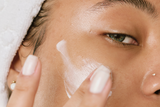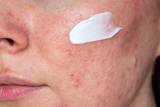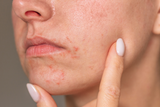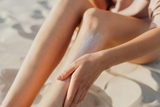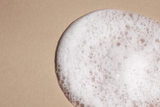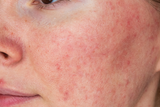Easy Peasy You
Why does sensitive skin feel tight after showering? 10 tips
Posted by Lara Schimweg on
Do you know that feeling? You step out of a warm shower and your skin immediately starts to feel tight. You have a strong urge to moisturize right away. And even after a few hours, your skin is still flaky and tight.
Avoid unnecessary contact with water and steam.
Use mild cleaning products
Use gentle skincare products
Why does my skin always feel tight after showering?
Your skin loses a lot of moisture due to the heat, water, and shower gel. It's essentially evaporating from your skin. If this happens to you frequently, your skin is dehydrated. This is most common with dry skin, but it can also occur with oily skin.
Either your skin type has always been dry, or it has become dry and more sensitive due to external factors like showering. Dry skin can be painful and itchy. It is also usually sensitive. Those with atopic dermatitis (eczema) are particularly familiar with the agonizing itching that often accompanies bleeding sores and scaly eczema. During the colder months, a change in the weather doesn't easily spare your sensitive skin.
What can I do about the feeling of tightness after showering?
These 10 tips can help you reduce or even completely eliminate the feeling of tightness after showering:
1. Don't shower too often
It's actually a real trend – and one that, for once, makes perfect sense: showering only once a week. It doesn't have to be that strict, though. We'd say: depend on the situation.
Some people might still turn up their noses if someone only showers once or twice a week. But that's actually healthy for our skin, and you don't have to smell bad because of it. The less oil you wash off your dry skin, the more moisture stays in your skin. This is especially beneficial for sensitive skin.
Thousands of beneficial microorganisms live on your skin, preventing harmful viruses and bacteria from taking hold. This is your skin's microbiome. Showering too frequently washes away this microbiome, disrupting its balance. Washing your skin less often will help prevent dryness.
Try this: Shower once or twice a week using mild cleansing products. You can wash your underarms and intimate area separately with a washcloth and mild cleansing lotions or water, if needed.
In this Puls video, Ariane Alter tries out showering only once a week. She also talks to experts about why showering less often is good for the skin.
2. Shower with lukewarm water
Ideally, the shower water should be no warmer than body temperature, around 36-37 degrees Celsius or slightly below. Water that is too hot will dry out your skin. Ice-cold water is also not ideal for dry skin, as it would cause excessive stress.
3. Don't shower for too long
You should shower for a maximum of 15-20 minutes. Anything less is even better, of course. Too frequent contact with water constantly strips your skin of moisture, as the heat and water wash away the natural oils. And these oils are precisely your skin's own natural moisturizer, which tries to retain moisture.
4. Use only mild washing products when showering.
When showering, for the sake of your skin, it's best to use only pH-neutral cleansing bars (syndets) or mild shower gels and no soap, as soap would dry out your skin even further and disrupt your microbiome . If you have very dry skin, it makes sense to switch to a nourishing shower oil to prevent dryness while showering.
5. Apply lotion before showering.
Applying lotion before showering? It sounds strange, but it makes perfect sense for very dry skin. Let's say your facial skin is particularly irritated because wind, weather, and other stressors have taken their toll. The steam from the shower is so drying that you don't know how you can even shower without your skin constantly feeling tight. Briefly wash your face with water or a mild cleanser and then apply a gentle, non-irritating cream . The layer of cream protects your skin from the water and steam, preventing it from being stripped of its natural oils. This helps your skin retain moisture and prevents it from drying out so quickly. Applying lotion to dry, flaky legs before showering can also be beneficial.
← Older Post Newer Post →
0 comments



